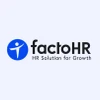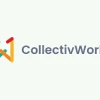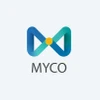Core Human Resource Management System is a comprehensive and centralized system that manages the most important HR functions (Core)- from employee recruitment to tracking employee performance. In this blog post, we will discuss various elements, functions, importance, and benefits of Core HRMS.
We would also list out the 5 best core HR software of 2022 that would help you to automate, integrate and streamline major HR tasks efficiently.
Before we get started with Core HRMS, it is important to understand what “Core HR” means, and what functions it includes.
What is Core HRMS?
Core HR usually refers to the foundation of Human Resources processes that are common to most organizations. It includes entry-level HR tasks like employee self-service, benefits and payroll administration, time and attendance tracking, and compliance management.
However, the definition of “core” can vary from organization to organization, depending on their specific HR needs. For example, some manufacturing organizations may consider staff productivity to be part of their core HR processes, as their entire business model revolves around efficiency.
Elements of Core Human Resources
There are five essential functions of human resource professionals. This list could be extended depending on the specific industry or requirements.
- Recruitment and Talent management: One of the most essential functions of HR is recruiting the right employees for an organization. This includes sourcing, screening, and hiring the right employees. HR should also manage the employee database, work policy, etc.
- Compensation, Benefits and Payroll: Manage employee compensation and benefits. This includes setting salaries, administering bonuses and commissions, and managing health insurance and other employee benefits. It includes salary, bonuses, commissions, and incentives. This element also covers health insurance, retirement plans, and other employee benefits.
- Training and Development: It is crucial for the HR department to provide training programs for employee upskilling. This may include classes, workshops, seminars, conferences, etc.
- Performance Management: It is important for organizations to set goals and objectives for employees, measure their performance, and provide feedback. The essential task of HR also includes conducting performance reviews and managing employee career development.
- Compliance Management: You must ensure that your organization is complying with all relevant laws and regulations. These laws involve equal employment opportunities, workers’ compensation, and occupational safety and health.
Suggested Read: Why Your Company Requires HRMS Software with Employee Self Service Portals?
Difference Between HRMS, HRIS and HR Software
| Term | Definition |
| HRMS | -Entire HR System including hardware, software, database, policies, people, etc. |
| HR Software | – Computer Program that helps to manage, integrate and automate HR processes |
| HRIS | – Especially related to recording, managing, updating and analyzing employee information |
All these terms “HRMS”, “HRIS and “HR software” are used interchangeably many times. However, these terms differ significantly if we look deeper.
HRMS is a centralized system that covers all the essential HR functions- from employee recruitment to performance management. It includes HR software, hardware, apps, database, policies, people, and all other infrastructure for effectively managing the HR tasks.
HRIS is a human resources information system that enables HR departments to store, manage, and analyze employee data. It includes employee self-service portals, documentation, databases, and servers that specifically relate to record keeping and information management
On the contrary, HR software is a tool that helps organizations automate and manage their HR processes. It allows employers to do things like store employee data, create employee profiles, and run payroll. However, it does not offer the same comprehensive range of features as a full-fledged HRMS system.
In short, HR software and HRIS are a part of HRMS.
What is Core HR Software?
There are various HR software applications available in the market. However, not all of them can be considered as “Core HR” software.
To be considered Core HR, the software must offer a comprehensive range of features that help organizations automate and manage essential HR processes. These features must include the ability to store employee data, create employee profiles, manage recruitment, time and attendance management, maintain payroll, and much more.
Additionally, the software might also have a self-service portal for employees, a robust document management system, and a powerful data analytics tool.
There are two major types of core HR software: Cloud-based and On-premises.
Suggested Read: 9 Best Employee Referral Program Examples for Quick Hiring
Why Is it Important to Implement Core HR software?
Here are some of the many reasons why implementing Core HR software is important for businesses
- Higher Productivity
By automating HR processes, businesses can save a significant amount of time and effort that can be diverted towards more productive tasks.
- Better Employee Engagement and Retention
A self-service portal for employees gives them the freedom to view, modify and update their HR data and records anytime, anywhere. This helps increase transparency and communication between the employer and employee, leading to improved engagement and retention.
- Improved Decision-Making
Core HRMS allows the management to track employee data and performance, generate reports, and get deeper insights into the workforce. The data and information can be used to make strategic decisions about succession planning, talent management, and career development.
- Cost Reduction
By automating HR processes, businesses can save on the costs of hiring and training new HR staff. In addition, it can also help to eliminate the need for paper records, manuals, and other resources.
- Compliance with Regulations
The software can help businesses stay compliant with ever-changing HR regulations. It can automate and keep track of employee onboarding, performance evaluation, and recording.
Suggested Read: List of 20 Best HR Software In India – HRMS Software Companies
5 Best Core HR Software in 2023 for Small Businesses
| Software | Key Features | Pricing |
| Keka HR | Multi Asset Tracking, GPS based attendance tracking, Time sheet management | ₹ 8259/Month |
| BambooHR | Remote Hiring module, Employee Engagement Module, Wellbeing Surveys, | Custom Pricing |
| Zoho People | Corporate LMS, Skill Set Matrix, 360-degree feedback management | ₹ 59/Employee/Month |
| GreytHR | Know Your Employee (KYE), Expense Claim Management, Indian Law Compliant | ₹ 1764/Month |
| People HR | Industry Specific Module, Employee Self Onboarding, | ₹ 58/User/Month |
Here are some of best HR software in the market that covers all the core HR functions
Keka HR
Keka HR is an all-in-one, cloud-based platform that streamlines and integrates all the essential HR functions through single platforms. The major module of Keka HR includes payroll management, timesheet management, hiring and onboarding, performance, and time and attendance management.
Keka HR Features
- Android and iOS compatibility
- Advanced attendance tracking through GPS
- Shift scheduler and timesheet
- Webhooks and API
- Multiple legal entities payroll
- Asset tracking
Compatibility: Web based, Android and iOS
Keka HR Pricing: ₹ 8259/Month
BambooHR
BambooHR is another web based HRIS solution widely popular for enhancing employee experience and engagement. It includes People Data and Analytics, Applicant Tracking System, Onboarding & Offboarding and Compensation Management modules. It also facilitates some of the advanced HR functions like employee satisfaction (eNPS), remote hiring and workflow & approvals modules.
BambooHR Features
- Standard analytics and reporting
- Digital paperwork with e-signature
- Employee satisfaction and wellbeing surveys
- Training and upskilling tracker
- Employee self-service portal
- Open API
- Employee timesheet tracker
Compatibility: Web-based, iOS and Android
BambooHR Pricing: Custom pricing
Suggested Read: Why is Succession Planning Important in HRM
Zoho People
Zoho People is the trending Core HR solution that excels in delivering an exceptional employee experience. It is a comprehensive solution with modules like Payroll, Time and Attendance, Applicant tracking system, Onboarding & offboarding and Employee self-service. It also has some industry specific tools like Corporate Learning management system, shift and timesheet management, expense, and case management.
Zoho People Features
- HR chatbot
- Skill Set matrix
- Tasks and Appointments management
- Advanced analytics and reporting
- Goal management and 360-degree feedback
- Comprehensive performance management
Compatibility: Android, iOS, and Web-based
Zoho People Pricing: Starts at ₹ 59/Employee/Month
GreytHR
GreytHR is one of the most popular names in the list. It covers all major HR modules like Payroll, Time & attendance, Applicant Tracking System, Onboarding & offboarding and Employee self-service. Besides, it offers 100% compliance with India’s statutory regulations, wage codes and Taxation laws.
It is widely used by small and medium businesses for its simple and user-friendly interface, automated workflows and robust tracking features that make the HR processes more efficient.
GreytHR Features
- Automated and configurable workflows
- Employee self-onboarding
- Employee self-service app and web portal
- Letters and mail merge
- Expense claim management
- Know your employee (KYE)
- Advanced analytics and reporting
Compatibility: Web-based, Android, and iOS
GreytHR Pricing: Starts at ₹ 1764/Month
Suggested Read: 6 Reason To Invest In HR Services For Organization
People HR
People HR is an industry leading HRIS solution that is known for its simple and user-friendly interface, robust automation and end-to-end features. HR’s can customize every aspect of HRMS system including leave policies, hierarchy, benefits pay, workflows, and so on.
The solution majorly is used by small and medium businesses in retail, education, hospitality, healthcare, and manufacturing sectors to manage employee data, create digital employee files and onboard new hires.
People HR Features
- Automated and configurable workflows
- Employee Self Onboarding
- Employee self-service app and web portal
- Digital signature integration
- Custom leave and benefit settings
- 360-degree feedback system
- People directory
- Advanced analytics and reporting
People HR Compatibility: Web-based, Android, and iOS
People HR Pricing: Starts at ₹ 58/User/Month
Challenges in Implementing Core HRMS
Even though there are many benefits of implementing Core HRMS, there are also some challenges that businesses need to be aware of.
- Software and Hardware Cost:
The initial cost of purchasing and implementing the software can be high. In addition, businesses will also need to invest in adequate IT infrastructure and resources to support the software.
- Training and Change Management
Implementing such a system can be a complex and time-consuming task. Businesses will need to provide adequate training to their employees to help them get accustomed to the new system. Additionally, a change management plan should be in place to ensure a smooth transition.
- Data Security
Since the software will store sensitive employee data, businesses will need to have adequate security measures in place to protect it. It’s important that the software has data encryption, role-based access, and other features for adequate security.
- Technological Feasibility
Another challenge is to ensure that the technology infrastructure of the business is adequate to support the Core HR system. The system will need to be compatible with the existing systems and hardware, and the business should have the required bandwidth and resources.
Summary
Human resources management is vital for any organization for survival and growth. Implementing Core HRMS can offer many benefits, such as improved efficiency and data security.
Investing in HR software could be the first step toward a resilient and agile work force. However, there are also some challenges when implementing which must be addressed while implementing a HR system
Related Categories: Payroll Management Software | Attendance Management Software | Leave Management Software | Recruitment Management Software | Grievance Management Software
FAQ’s
What is core HR processes?
Core HR processes are the essential functions and activities of the human resources department. These processes include employee data management, onboarding, benefits administration, performance management, and payroll.
What are the benefits of implementing a core HR system?
Some of the benefits of implementing a core HR system include improved efficiency and accuracy of HR processes, better data security, and easier compliance with HR regulations. Additionally, a core HR system can help to improve employee engagement and satisfaction.
What are some of the challenges of implementing a core HRMS?
Some of the challenges of implementing a core HR system include the cost of purchase and implementation, training and change management, and data security. Also, organizations need to ensure that their technology infrastructure is adequate to support the system.
What are the 5 core areas of human resource management?
The 5 core areas of human resource management are employee data management, onboarding, benefits administration, performance management, and payroll.
Rajan is pursuing CA with a keen interest in trends and technologies for taxation, payroll compliances, Tally Accounting, and financial nuances. He is an expert in FinTech solutions and loves writing about the vast scope of this field and how it can transform the way individuals and businesses... Read more






























